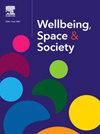混合工作环境中不断变化的场所感:对场所认同和员工幸福感的系统回顾
IF 2.2
Q2 GEOGRAPHY
引用次数: 0
摘要
“地点感”的概念是指个体对特定地理位置的主观感知和情感依恋。它包含了受各种社会、文化、历史和生态因素影响的多维和复杂的体验。然而,混合和地点灵活的工作安排日益流行,对这一概念构成了潜在的挑战。本研究的主要目的是进行全面的文献综述,重点关注地方感的多面性以及应对混合工作时员工地方认同的潜在转变。通过对四个学术数据库的系统检索,根据既定的系统评价指南,确定并纳入了14项实证研究。我们的内容分析揭示了三个主要发现:(1)在混合工作环境中塑造员工认同感的七个关键因素;(2)工作场所认同适应的四种不同状态:家庭型、工作型、整合型和虚拟型;(3)认同变化对员工幸福感的双重影响。研究结果有助于理解身份动态及其对混合工作安排中员工幸福感的影响,同时为组织在混合工作环境中增强地方感提供了实际见解。本文章由计算机程序翻译,如有差异,请以英文原文为准。
Changing sense of place in hybrid work environments: A systematic review of place identity and employee well-being
The concept of "sense of place" refers to an individual's subjective perception and emotional attachment to a specific geographic location. It encompasses a multidimensional and complex experience that is influenced by various social, cultural, historical, and ecological factors. However, the increasing prevalence of hybrid and location-flexible work arrangements poses a potential challenge to this concept. The primary aim of this study is to conduct a comprehensive literature review, focusing on the multifaceted nature of sense of place and the potential transformation of employees' place identity in response to hybrid work. Through a systematic search of four academic databases, fourteen empirical studies were identified and included based on predetermined inclusion criteria following established systematic review guidelines. Our content analysis revealed three key findings: (1) seven critical factors that shaped employee identity in hybrid work environments; (2) four distinct states of workplace identity adaptation—home-oriented, work-oriented, integrated, and virtual; and (3) the dual effects of identity changes on employee well-being. The findings contribute to understanding identity dynamics and their implications for employee well-being in hybrid work arrangements while providing practical insights for organizations to enhance sense of place in hybrid work environments.
求助全文
通过发布文献求助,成功后即可免费获取论文全文。
去求助
来源期刊

Wellbeing Space and Society
Social Sciences-Social Sciences (miscellaneous)
CiteScore
2.70
自引率
0.00%
发文量
46
审稿时长
124 days
 求助内容:
求助内容: 应助结果提醒方式:
应助结果提醒方式:


